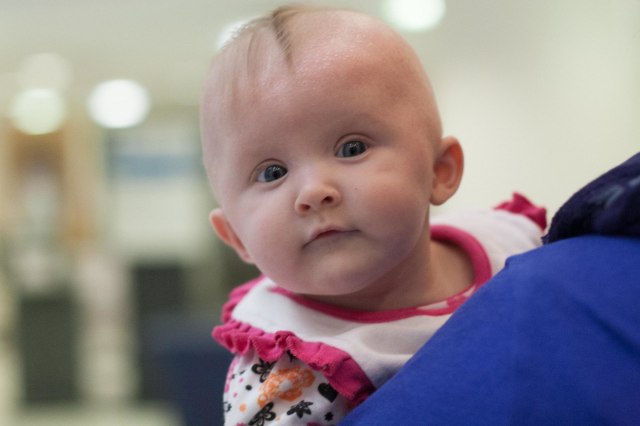By JoNel Aleccia

James Cheng / for NBC News
Seven cases of a rare
fatal birth defect were reported in a remote region of Washington state
in 2013, making it the fourth consecutive year that rates have more than
tripled the national average, health officials said Tuesday.
There’s
still no clear reason for the spike in anencephaly, a severe defect in
which babies are born missing parts of the brain or skull, according to a
statement from Washington state health officials. NBC News investigated the issue in February.
The
rate jumped to 8.7 cases per 10,000 births in the area that includes
Yakima, Benton and Franklin counties in eastern Washington state, far
exceeding the national anencephaly rate of 2.1 cases per 10,000 births.
State
officials, working in conjunction with the Centers for Disease Control
and Prevention, say they plan to convene an advisory committee to review
options for investigation and prevention — and they’ll hold “listening
sessions” in the community to hear more about public concerns about
problems in the region.
That
hardly seems like enough, said one mother whose baby was born with spina
bifida last year and was considered part of a cluster of cases of
neural tube defects in the region.
“It’s
good that they want to know everybody’s thoughts, but what are they
doing about it?” said Andrea Jackman, 30, who lived in an orchard in
Yakima, Wash., while she was pregnant but now lives in Ellensburg. Her
daughter, Olivia, is 7 months old.
“Why are they going to put the time and money into chatting with people who don’t know? Do the research.”
The new count follows a report last summer
that found more than two dozen cases of babies born with anencephaly
and other neural tube defects in the region between 2010 and 2013.
Medical
records indicate low rates of folic acid vitamin supplementation in the
region, which has been linked to anencephaly. Other studies have shown
ties between the defect and exposure to molds and pesticides. Critics
have said state and federal officials need to do detailed interviews and
a thorough investigation of the eastern Washington cluster.
Many
local residents are convinced that leaking tanks of nuclear waste from
the region’s nearby Hanford nuclear plant must be to blame, but Dr.
Edith Cheng, a University Washington Medicine expert on birth defects,
said there has not been a good evaluation of the plant’s impact on
anencephaly or other problems.
Experts emphasize the need for all women of childbearing age to take folic acid supplements.
No hay comentarios:
Publicar un comentario